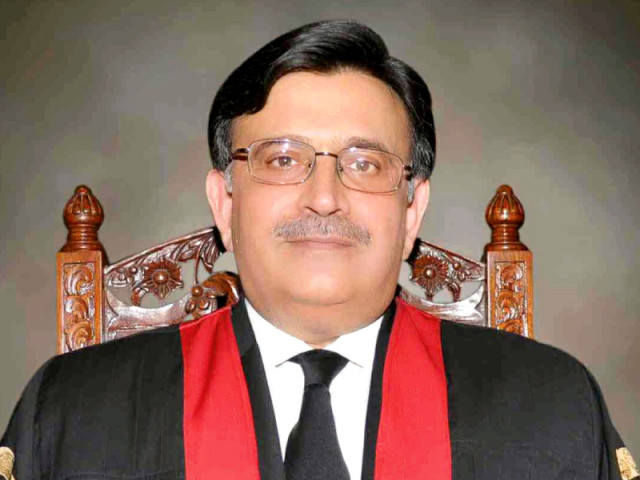Centre-province consultation must for transfer, posting: CJ
AGP Khan said Sindh has increased the posts of PAS officers

Chief Justice of Pakistan Umar Ata Bandial observed on Monday that transfers and postings of officers should be done in consultation between the Centre and the provinces and that there should be no unilateral decisions.
Heading a three-member bench, which also included Justice Mansoor Ali Shah and Justice Ayesha Malik, the chief justice gave the observation during a hearing of the case regarding the postings of officers belonging to the Pakistan Administrative Service in the provinces.
Attorney General for Pakistan (AGP) Khalid Javed Khan informed the bench that officers of the Pakistan Administrative Service were sent to the provinces as per their requirements. He added that the Sindh government had an objection that the federal government did not provide it the required number of officers.
According to the law, the AGP informed the bench, if there was a vacancy, the province could appoint a provincial officer to fill it. AGP Khan added that the Sindh government had increased the posts of PAS officers.
Justice Shah asked if a province could appoint the chief secretary. The attorney general replied that the chief secretary and the inspector general of police (IGP) were appointed by the federal government in consultation with the province.
AGP Khan said that the Centre never had the full number of officers, adding that there was a 25% quota of each province for the officers in Grade-17. Justice Mansoor said that if there was a 25% quota then the number of officers should be fixed for each province.
However, the attorney general said if the province needed less Grade 17 officers than the fixed number, where would the rest of the officers go. It was pointed out that there was another issue that an officer posted in Sindh for 19 years was removed but the Sindh government would not release him.
Read Vawda challenges lifelong disqualification in SC
The advocate general of Sindh told the bench that there was no consultation for removing the officers from the province. Justice Malik said that under the rules, appointments for five years should be made in consultation with the provincial government and after five years, the officer should leave the province.
She noted that the rotation policy had not been challenged by the Sindh government. Chief Justice Bandial enquired as to how the petition of the Sindh government fell under the purview of Article 184/3 – the constitutional clause related to the court’s original jurisdiction on an issue of public importance.
The Sindh advocate general said that a dispute between the provincial government and the federal government could be brought to court. However, Justice Shah said that only legal disputes could come to court, adding that a shortage of officers was an administrative issue.
The attorney general said Sindh had the highest number of CSP [Central Superior Services of Pakistan] officers. Justice Shah asked how could Punjab, which was twice the size of Sindh, had fewer officers. The attorney general replied that the province had not deployed even 75% of its quota officers.
Justice Shah said that the shortage of officers was also a problem in Sindh. The chief justice said that the transfer of officers should be done only through consultation and that there should not be any unilateral transfers and postings. Later, the hearing was adjourned until next week.



















COMMENTS
Comments are moderated and generally will be posted if they are on-topic and not abusive.
For more information, please see our Comments FAQ